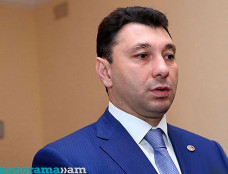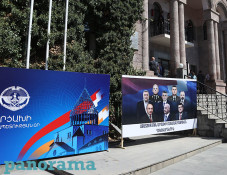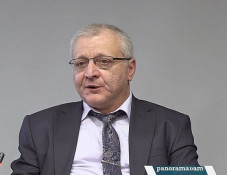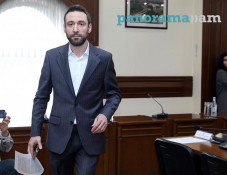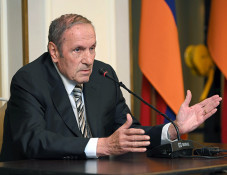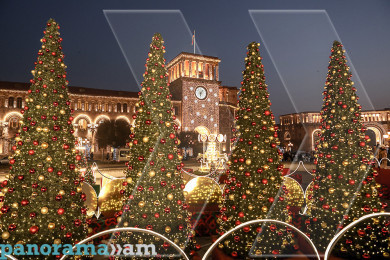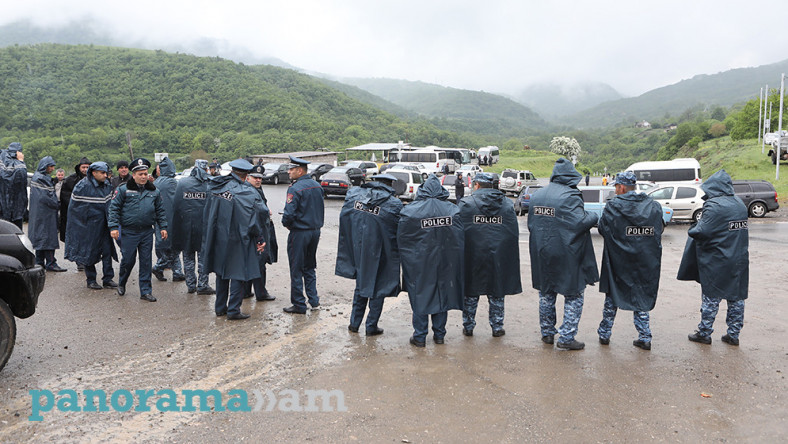
Pashinyan hails border deal with Azerbaijan
Armenian Prime Minister Nikol Pashinyan praised a controversial border delimitation and demarcation deal with Azerbaijan at a cabinet meeting on Thursday as dozens of protesters opposing the agreement gathered outside the government building cordoned off by police officers.
"You know that it was fundamental for us not to create a new border in the process of demarcation between Armenia and Azerbaijan, but to reproduce the borders previously affirmed by the Alma-Ata Declaration. In other words, we are saying that during delimitation we should not create a border, but we should reproduce the borders that existed at the time of the collapse of the Soviet Union and have de jure legal significance. For this, we first referred to the Alma-Ata Declaration, and on April 19, this was fixed, recorded, as the basic principle of the entire demarcation process. Now we also have a reference to the maps, and they are the last de jure maps of the Soviet Union," Pashinyan said.
"And I want to describe what the duty the process is: between the Soviet republics, in fact, if not constantly, there were regular adjustments of border issues according to the internal laws and procedures of the republics, of course, within the framework of the legislation of the Soviet Union. And those already established processes were given final legal force at the cartographic level by the authorized body of the Soviet Union in the field of geodesy and cartography, which regularly, from time to time, collected from the republics the decisions that had already gained legal force in the republics, that is, what information that existed during that time, that has legal force, was collected, they were rechecked. This is a very important circumstance, that is, not only has the information been collected, but the authorized body went back to find out how legally justified the information it received really is. And, based on all this information, it confirmed the cartographic basis of the border line between the Soviet republics.
"And here, in our demarcated area, the maps that went through that duty process were in 1979, that is, were de jure approved, are the last such maps during the Soviet Union. In other words, during the existence of the Soviet Union, there is simply no other map that has passed the duty process in our demarcated areas.
"And this principle, that there should be a reproduction of borders, is extremely important for us. And in simpler terms, we have adopted the principle that the border passes where it passes. I want all of us to record this subtlety: the border passes where it passes. And this is also an extremely important principle. Because if we were to go with the logic that by deviating from this principle, we should create a new border, what would that mean, would that mean that we are creating a direct source of escalation and military conflict? With this process of ours, of course, I don't want us to overestimate what happened, but I also don't want to underestimate it, by fixing this principle, when we say that the border passes where it passes, we, in fact, if have not eliminated the chances for escalation, at least we have significantly reduced it. And also in this sense, I consider what happened to be a very important and essential success," he remarked.
Related news
- Opposition MP: Armenian leadership 'scared' of protest movement
- In pictures: Rally held outside Armenian government
Newsfeed
Videos









